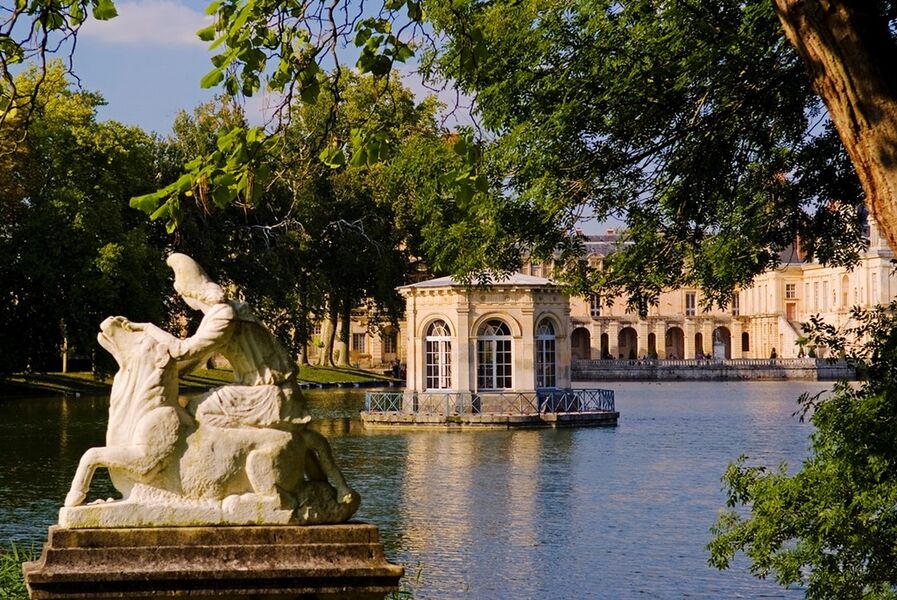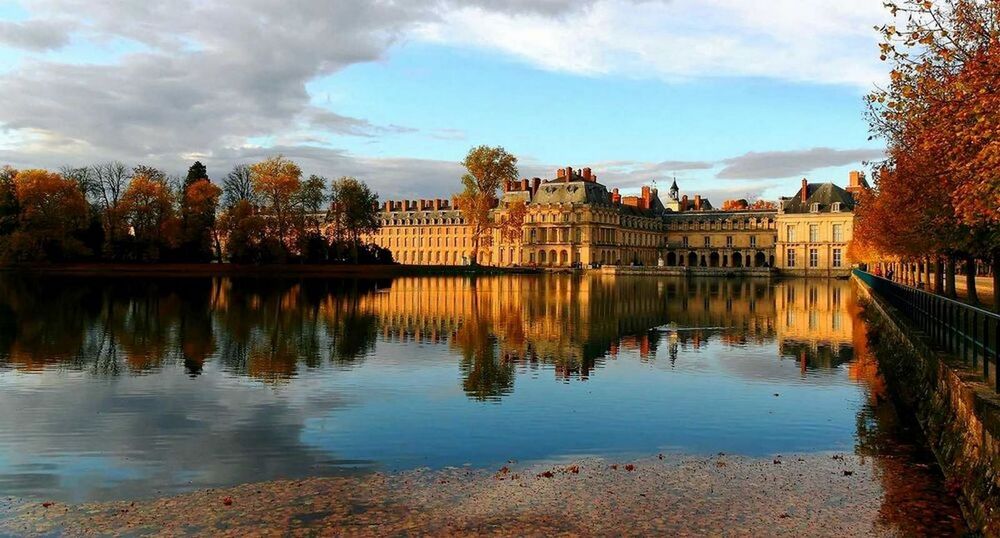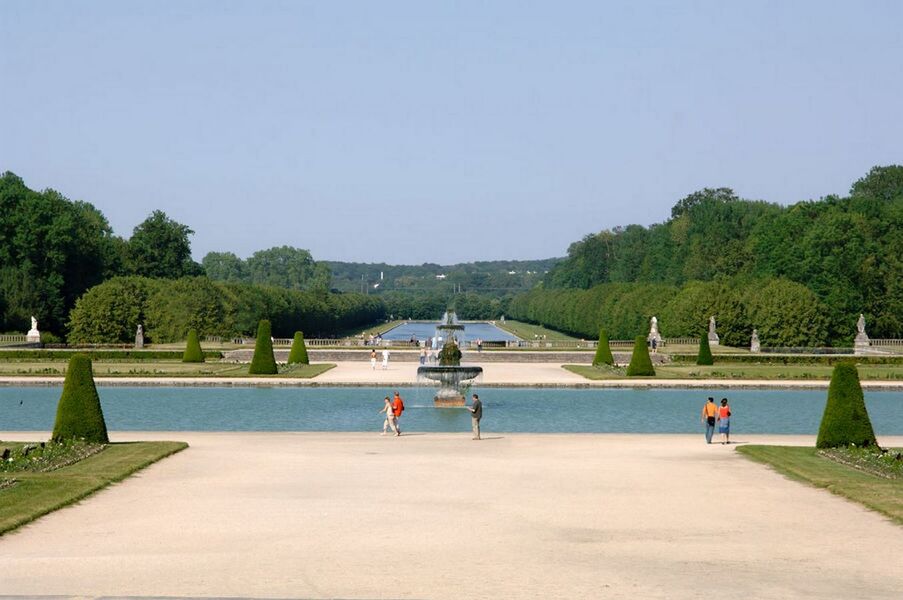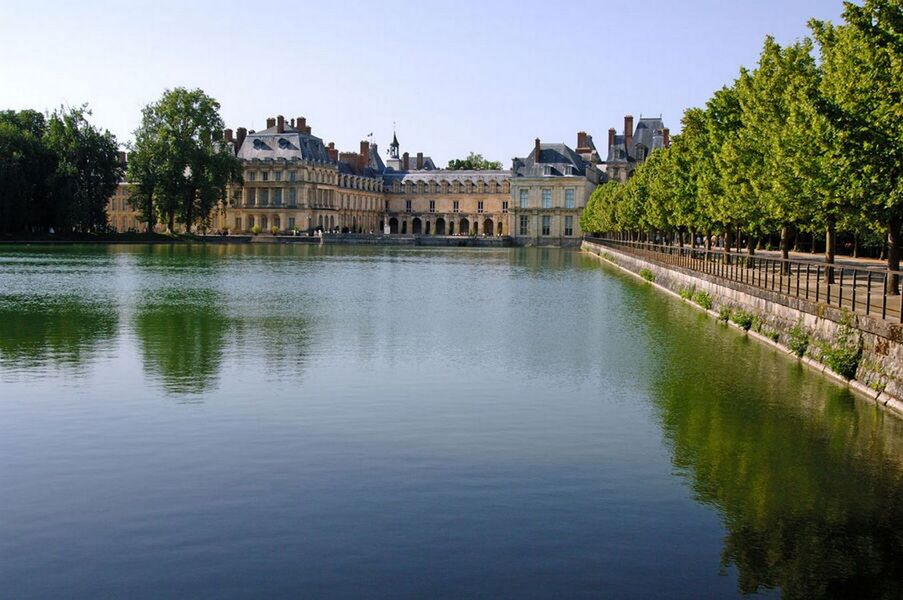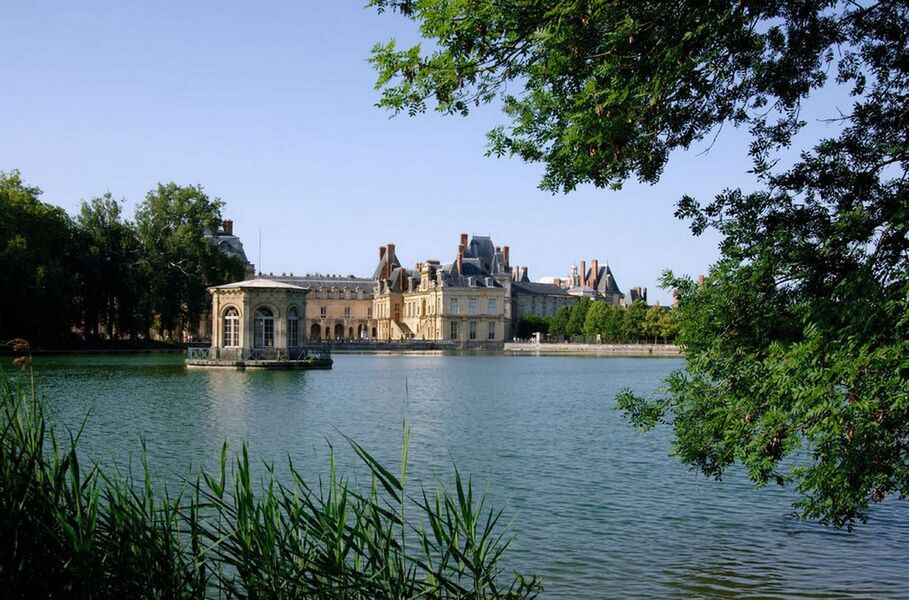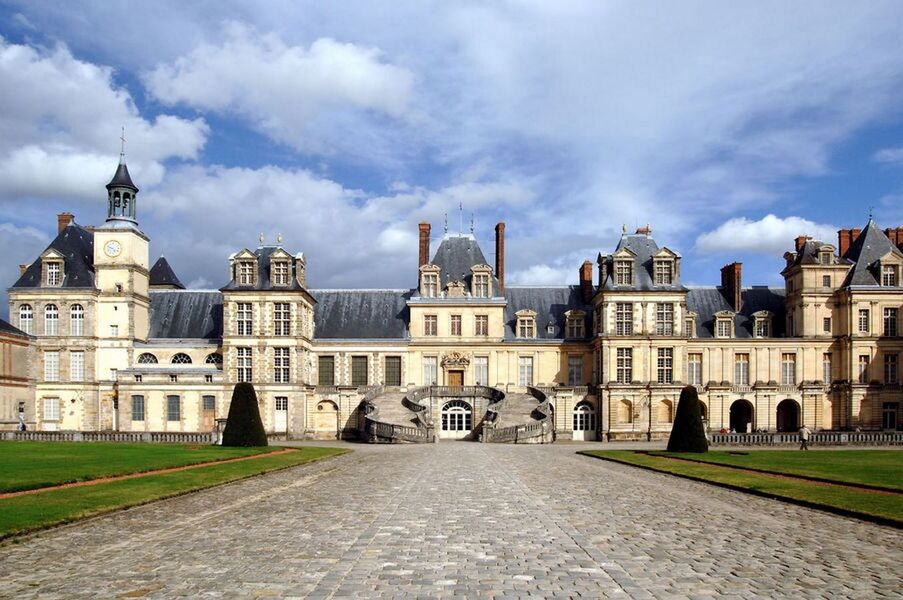Fontainebleau palace gardens
Fontainebleau
Fontainebleau palace gardens
In the 130 hectacres of garden , you can see the evolution of the art of the garden illustrated by the Great Flowerbed ("Grand Parterre") , French-style garden designed by Le Notre, the Carp Pond, the English garden, created under the first Empire, the Garden of Diana ("La jardin de Diane"), the Park , the 1200m canal ... Remarkable trees, Diana's Fountain, the Park, exotic essences, the English river ...
These royal and imperial gardens are witnesses to the evolution of taste since the 16th until the 19th century in terms of landscaping.
The Renaissance gardens created for Francis Ist and Henry IVth were mainly based upon a system of draining canals which started from the different wells and the carp pond and lead to the great canal.
The Grand Parterre (Huge flowerbed) was created later in a very humid part situated between the carp pond and the canal. Under the reign of Louis XIVth, this "parterre" (the biggest one in Europe) will adopt a very classical appearance du to André Le Nôtre who conceived a real perspective leading from the pond to the canal with the fountain of "Tibre" in the centre of the parterre. This royal parterre reaches from the Maintenon alley to the cascades, from the ballroom and the quarter Henry IVth to the side perspective of "Saut du Loup" (the wolf hop).
The Diana Garden is the former garden of the Queen. Its name comes from the fountain (17th century) which occupies its centre. This garden is limited by the "Galerie des Cerfs" built under Henry IVth (Deer Gallery), the small apartments (Louis XVIth), the Trinity Chapel, the Real Tennis court and separated from the town by a wall with some openings.
The English garden was created in its present shape under the reign of Napoleon Ist. It is organised around an artificial romantic creek. Its valley like landscape integrates some sculptures and rare species of trees and plants. The carp pond, which dates back to the Middle Ages, is bordering this garden. In the centre of the pond the architect Louis Le Vau constructed a romantic pavilion under Louis XIVth (1662).
The Renaissance gardens created for Francis Ist and Henry IVth were mainly based upon a system of draining canals which started from the different wells and the carp pond and lead to the great canal.
The Grand Parterre (Huge flowerbed) was created later in a very humid part situated between the carp pond and the canal. Under the reign of Louis XIVth, this "parterre" (the biggest one in Europe) will adopt a very classical appearance du to André Le Nôtre who conceived a real perspective leading from the pond to the canal with the fountain of "Tibre" in the centre of the parterre. This royal parterre reaches from the Maintenon alley to the cascades, from the ballroom and the quarter Henry IVth to the side perspective of "Saut du Loup" (the wolf hop).
The Diana Garden is the former garden of the Queen. Its name comes from the fountain (17th century) which occupies its centre. This garden is limited by the "Galerie des Cerfs" built under Henry IVth (Deer Gallery), the small apartments (Louis XVIth), the Trinity Chapel, the Real Tennis court and separated from the town by a wall with some openings.
The English garden was created in its present shape under the reign of Napoleon Ist. It is organised around an artificial romantic creek. Its valley like landscape integrates some sculptures and rare species of trees and plants. The carp pond, which dates back to the Middle Ages, is bordering this garden. In the centre of the pond the architect Louis Le Vau constructed a romantic pavilion under Louis XIVth (1662).
- French
- Couples Children Groups
Opening times
From 01/01 to 31/12, daily.
Prices
Prices
Free of charge.

